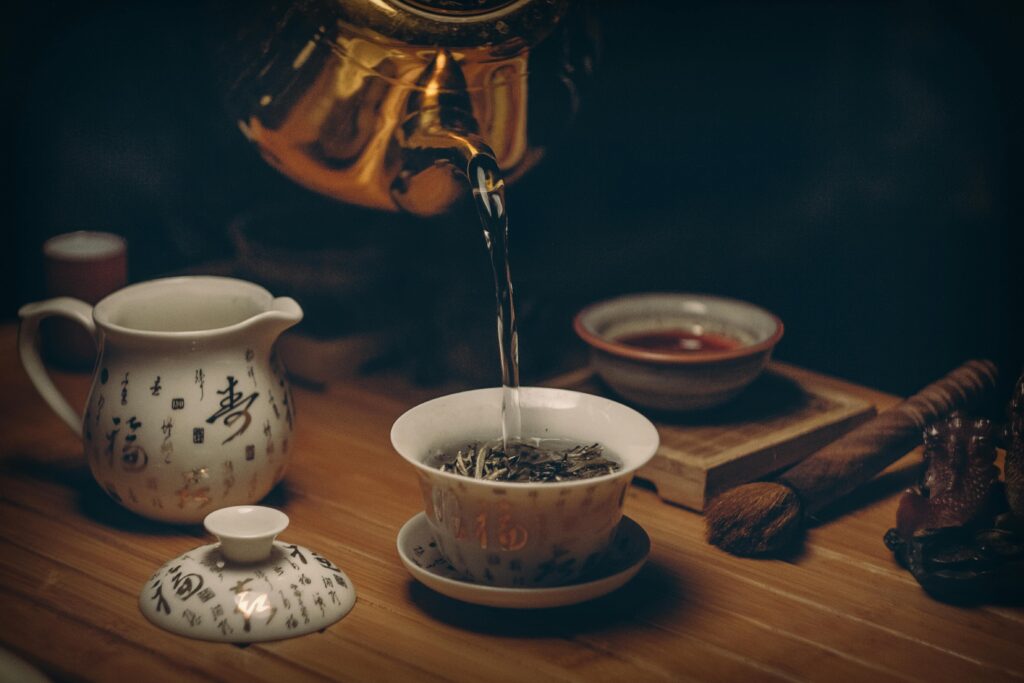Green Tea vs. Black Tea: Which One is Better for Your Health?
Green and black tea are two of the most popular teas worldwide, and both boast several health benefits. Despite their differences in flavor and appearance, both teas come from the Camellia sinensis plant. Their shared origin gives them similar health-boosting properties, but their distinct processing methods result in unique benefits, flavors, and caffeine content. This post explores the benefits of both teas, helping you decide which one is the right fit for your lifestyle.

Similar Benefits: A Healthy Boost for Heart and Mind
Both green and black tea contain caffeine and L-theanine, an amino acid that promotes calmness and reduces the jitteriness often associated with coffee. Together, caffeine and L-theanine improve mood, concentration, memory, and reaction time by stimulating dopamine and serotonin—chemicals that enhance a sense of well-being.
Additionally, both teas are loaded with flavonoids, powerful antioxidants that support heart health. Regular consumption of these teas has been shown to reduce bad cholesterol, lower blood pressure, and decrease plaque buildup in blood vessels, promoting overall cardiovascular health.
The Unique Benefits of Green Tea
Green tea undergoes minimal oxidation during processing, preserving a potent antioxidant called epigallocatechin-3-gallate (EGCG). This compound is often credited for green tea’s reputation as a superfood. Research suggests EGCG can:
- Inhibit the growth of cancer cells
- Support brain function and reduce the risk of Alzheimer’s
- Boost metabolism and improve stamina
- Protect the liver and strengthen immune function
- Fight harmful bacteria and viruses
Matcha, a powdered form of green tea, contains even higher concentrations of EGCG, making it a popular choice for health-conscious consumers.
The Unique Benefits of Black Tea
Black tea is more oxidized, giving it a stronger, richer flavor and higher caffeine content than green tea. This oxidation process also creates unique polyphenols called theaflavins, which offer their own health benefits:
- Support fat breakdown and weight management
- Improve bone health and reduce oxidative stress
- Enhance cardiovascular health and cholesterol management
Additionally, black tea’s higher concentration of L-theanine can promote better focus and circulation, making it a great choice for those needing mental clarity.

Which Should You Choose?
Both green and black teas are excellent choices, offering different benefits that complement a healthy lifestyle. Green tea may be better if you prefer a lighter, grassy flavor, want to reduce inflammation, or are looking for a gentler option for digestion. Black tea, with its deeper, tannic taste and higher caffeine content, might be ideal for those who enjoy bold flavors and need an energy boost.
EUROPEAN PERSPECTIVE
Black Tea vs Green Tea according to Kusmi Tea
Though both green and black tea come from the same plant (Camellia sinensis), they differ in how they’re processed, impacting their flavor, caffeine content, and health benefits.
1. Production Process:
Green tea undergoes minimal oxidation as its leaves are heated soon after picking, preserving their antioxidants. In contrast, black tea is fully oxidized, giving it a darker color and richer flavor.
2. Color and Flavor:
Green tea has a light yellow or orange hue with a fresh, grassy taste, while black tea ranges from amber to dark brown, offering a bolder, maltier flavor with less bitterness.
3. Caffeine Content:
Black tea contains more caffeine, making it ideal for an energy boost, especially in the morning. Green tea has about half the caffeine, making it a better option for relaxation and evening consumption.
4. Health Benefits:
- Green tea: Rich in antioxidants (polyphenols) that fight cell aging, boost immunity, and aid detoxification. Its L-theanine content helps reduce stress.
- Black tea: Contains theaflavins, which help manage cholesterol, blood sugar, and anxiety. Like green tea, it also contains L-theanine for mental clarity and relaxation.
5. Shelf Life:
Black tea stays fresh for years, while green tea loses its flavor after 12-18 months, though it remains safe to drink.
6. Sustainable Choices:
Choosing organic tea ensures better quality, with no pesticides and sustainable farming practices.
Both teas offer distinct benefits, so it’s worth trying both to see which suits your taste and needs. And don’t forget, there are many other varieties—like rooibos, matcha, and oolong—that might become your new favorite!
sources: https://www.vogue.com/article/black-or-green-tea
https://www.kusmitea.com/fr/difference-the-vert-the-noir/arttv17.html



